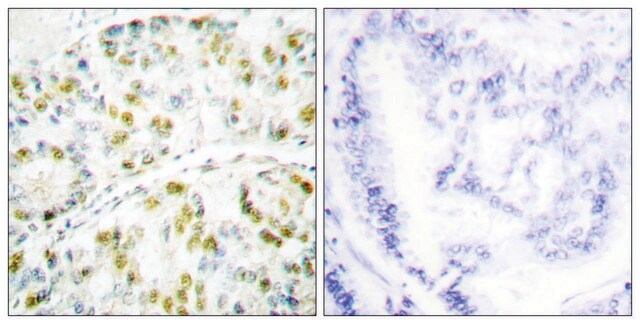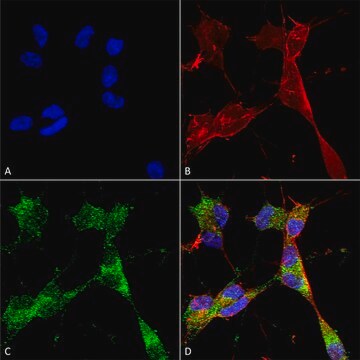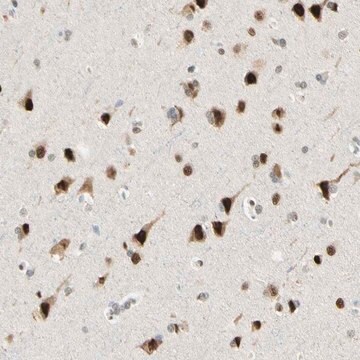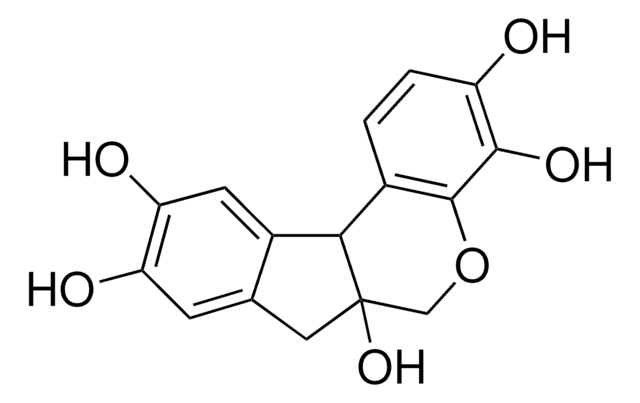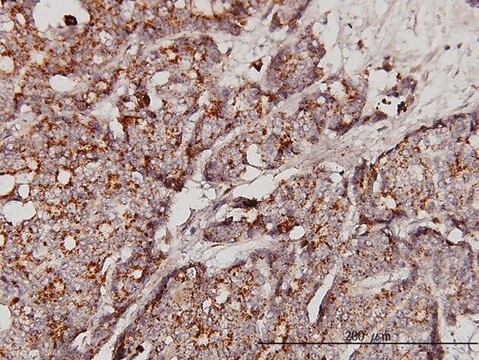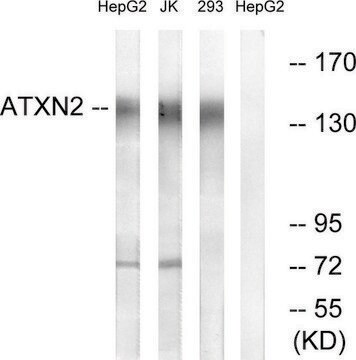MABN37
Anti-Ataxin-1 Antibody, 11NQ, clone N76/8
clone N76/8, from mouse
Synonyme(s) :
ataxin 1, Spinocerebellar ataxia type 1 protein, spinocerebellar ataxia 1 (olivopontocerebellar ataxia 1, autosomal dominant, ataxin 1), ataxin-1
About This Item
Produits recommandés
Source biologique
mouse
Niveau de qualité
Forme d'anticorps
purified immunoglobulin
Type de produit anticorps
primary antibodies
Clone
N76/8, monoclonal
Espèces réactives
rat
Réactivité de l'espèce (prédite par homologie)
mouse (immunogen homology)
Technique(s)
immunohistochemistry: suitable
Isotype
IgG2bκ
Numéro d'accès NCBI
Numéro d'accès UniProt
Conditions d'expédition
wet ice
Modification post-traductionnelle de la cible
unmodified
Informations sur le gène
human ... ATXN1(6310)
Description générale
Immunogène
Application
Neuroscience
Neurodegenerative Diseases
Immunohistochemistry Analysis: 1:500 dilution from a previous lot detected Ataxin-1 in rat cerebral cortex tissue.
Qualité
Immunohistochemistry Analysis: 1:500 dilution of this antibody detected Ataxin-1 in rat hippocampus tissue.
Description de la cible
Forme physique
Stockage et stabilité
Remarque sur l'analyse
Rat hippocampus tissue
Autres remarques
Clause de non-responsabilité
Vous ne trouvez pas le bon produit ?
Essayez notre Outil de sélection de produits.
Code de la classe de stockage
12 - Non Combustible Liquids
Classe de danger pour l'eau (WGK)
WGK 1
Point d'éclair (°F)
Not applicable
Point d'éclair (°C)
Not applicable
Certificats d'analyse (COA)
Recherchez un Certificats d'analyse (COA) en saisissant le numéro de lot du produit. Les numéros de lot figurent sur l'étiquette du produit après les mots "Lot" ou "Batch".
Déjà en possession de ce produit ?
Retrouvez la documentation relative aux produits que vous avez récemment achetés dans la Bibliothèque de documents.
Notre équipe de scientifiques dispose d'une expérience dans tous les secteurs de la recherche, notamment en sciences de la vie, science des matériaux, synthèse chimique, chromatographie, analyse et dans de nombreux autres domaines..
Contacter notre Service technique